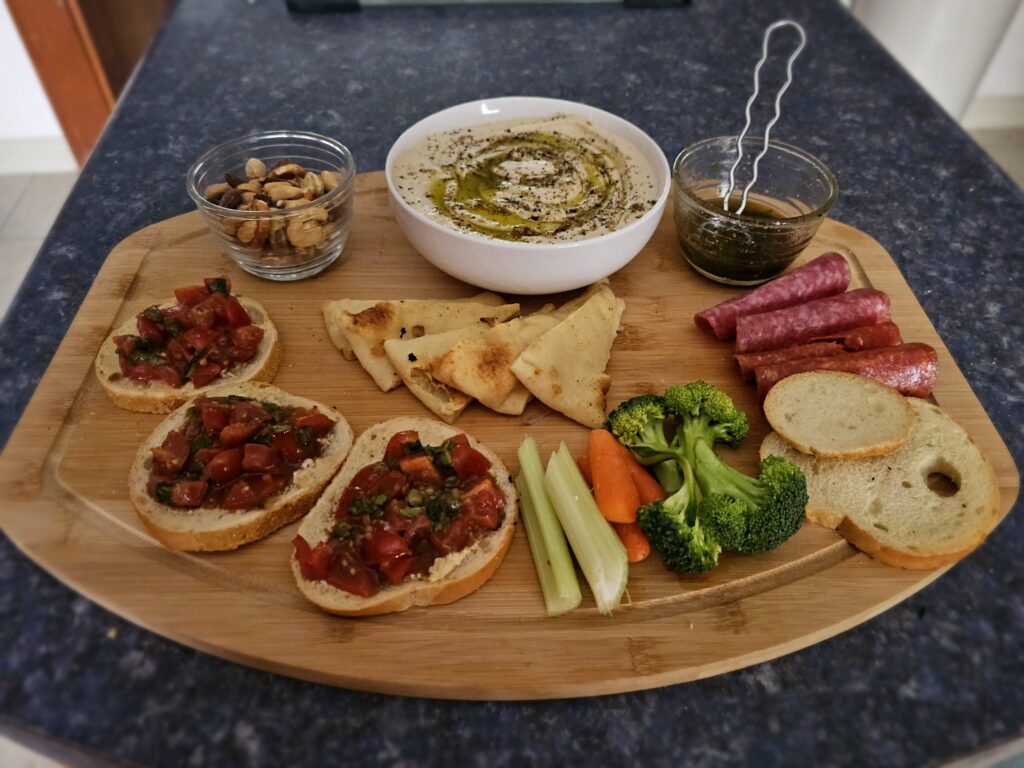Gluttony- The Unspoken Vice in Modern Society
I’m not Catholic, but who hasn’t heard of the 7 Deadly Sins? I knew gluttony was one of them, yet, in over two decades of attending church, I’ve never heard a single sermon on it. Seriously! A vice so like obviously there yet we’re just skipping over it like it’s not clear-as-day, mentioned in the Bible! So let’s unmask this vice and explore the journey towards moderation—a concept deeply rooted in the Bible but unfortunately neglected today.
Gluttony Largely Ignored in Religious Sermons
So why no sermons on gluttony? For one-
“Gluttony is a sin with visible consequences.”
This makes it a sensitive topic. Nobody wants to point fingers or make people uncomfortable. Yet, ignoring it doesn’t make it go away.
Perception of Gluttony as a Sensitive Topic
Gluttony is often linked to a lack of moderation. It is the excessive consumption (overconsumption) of food and drink. Yes, guys, this includes food and alcohol! In a society that has stigmatized shame, no one will touch it because it points out personal habits and lifestyle choices.
In prosperous nations, like the US and Canada, the issue is more pronounced. Here, abundance is the norm. But with abundance comes the temptation to overindulge. Everything in America screams supersize and “more is just barely enough.”
The Spiritual Warfare of Gluttony
Prevalence in Prosperous Nations
Let’s be real here. Gluttony is a sin. And sin has consequences.
As of 2024:
- Nearly 75% of Americans are overweight.
- 42% are obese.
- Obesity leads to heart disease, diabetes, fatty liver disease, respiratory problems, joint pain—you name it.
- About 25% of adults report binge drinking monthly.
- 29 million Americans suffer from alcohol use disorder.
We don’t just eat for survival anymore. We eat—and drink—for comfort, pleasure, and escape.
That’s hedonism. And hedonism without God will always lead to emptiness.
The Science Behind Food Addiction
Here’s where I really want you to lean in.
This isn’t just about willpower. It’s biology. It’s chemistry. And it’s being manipulated.
Our modern food, especially in the West—is engineered to be addictive.
Scientists are designing food to be hyper-palatable, combining high fat with high sugar to create a dopamine bomb that lights up your brain like a drug. And it is a drug. Sugar, in some studies, has been shown to be up to 8x more addictive than cocaine.
Think about that. You’re not weak—you’re fighting an actual chemical dependency that was intentionally put into your food.
This is why so many people feel trapped in cycles of binge eating, yo-yo dieting, and emotional overeating. It’s not just emotional—it’s physiological.
You know that feeling when you’re eating and the food suddenly stops tasting good? That’s not your imagination. It’s called palate fatigue. Your taste buds and brain have had enough, but we keep eating, chasing a feeling that’s already gone.
That’s when food becomes an idol.
As Paul writes in Philippians 3:19:
“Their end is destruction, their god is their belly, and they glory in their shame, with minds set on earthly things.”
Understanding Gluttony Through Scripture
Biblical Perspective on Food and Its Purpose
Have you ever wondered why food is such a central theme in the Bible? It’s fascinating, really. From the very beginning, in Genesis, God provides us with a clear perspective on food and its purpose. He says, “I have given you every seed-bearing plant on the face of all the Earth and every tree whose fruit contains seed; they will be yours for food.” This isn’t just about sustenance. It’s about nourishment, health, and the bounty of creation.
Food in the Bible is more than just fuel. It’s a gift. A symbol of God’s provision. But, like many gifts, it can be misused. That’s where gluttony comes in. It’s not just about eating too much. It’s about letting food become a god, a master, rather than a servant.
Dietary Laws in the Bible
Now, let’s dive into the dietary laws found in the Bible. These laws, primarily found in Leviticus and Deuteronomy, were not arbitrary. They were designed for health and nourishment. They were about keeping the body, the temple of the spirit, pure and healthy.

- Clean and Unclean Foods: The distinction between clean and unclean foods was crucial. It wasn’t just about hygiene. It was about obedience and holiness.
- Festivals and Feasts: These were times of celebration, yes, but also of moderation. They were about community and gratitude, not excess.
These laws remind us that food is a tool, not a trap. It’s meant to sustain us, not enslave us. But how often do we let it do the latter?
Solomon’s Reflections on Consumption and Pleasure
Solomon, one of the wisest figures in the Bible, offers profound insights into consumption and pleasure. In Ecclesiastes and Proverbs, he reflects on his life, his indulgences, and the lessons learned. He was a king, after all. He had access to every pleasure imaginable. Yet, he realized the emptiness of excess.
In Ecclesiastes, Solomon speaks of eating, drinking, and being merry (Ecclesiastes 8:15). But he does so with a sense of reflection and caution. He looks back on his life and sees the futility of hedonism. He warns us of the dangers of letting pleasure become our purpose.
Solomon’s writings contrast hedonism with spiritual living. He urges us to find balance. To enjoy the gifts of life, yes, but not to let them consume us. It’s a delicate dance, isn’t it? Between enjoying and overindulging. Between gratitude and greed.
Let’s Talk Alcohol
Quick word on this: it’s not a sin to drink. But it is a sin to get drunk.
Ephesians 5:18 says:
“Do not get drunk with wine, for that is debauchery, but be filled with the Spirit.”
In the U.S., we don’t just drink—we drink to black out. Binge drinking is normalized, even glorified. But it clouds your mind, opens you to temptation, and poisons your body.
Fun fact: in biblical times, they didn’t even have access to high-proof alcohol like we do today. Everclear didn’t exist. Liquor stores weren’t a thing. What we drink now is far more potent and dangerous than anything Jesus ever encountered.
Jesus’ Teachings on Indulgence and Its Effect
And what about Jesus? His teachings are central to understanding biblical perspectives on indulgence. In the New Testament, Jesus warns against overconsumption. In Luke 21:34, He says,
“Take care that your hearts aren’t dulled by drinking parties, drunkenness, and the anxieties of day-to-day life.”
Isn’t it fascinating how relevant this is today? Jesus knew that overindulgence could lead to a dull heart, distracted from spiritual matters. He was often accused of being indulgent Himself, yet He consistently taught moderation. His life exemplified balance, even in the face of criticism.
So, how do we apply these Biblical lessons to our modern lives? It’s not easy. We live in a world of abundance, where gluttony is often disguised as normalcy. But we can start by being mindful. By recognizing food as a gift, not a god.
Striking the Balance: Moderation as a Virtue
Moderation. It’s a word we hear often, but what does it truly mean? In essence, moderation is about balance. It’s about finding that sweet spot between excess and deficiency. We often hear the saying, “We are meant to eat to live, not live to eat,” which serves as a poignant reminder of moderation’s importance. But how do we apply this concept in our daily lives? Let’s explore.
Understanding Moderation
Moderation, or temperance, is a virtue that encourages us to control our consumption and maintain health. It’s about making conscious choices that promote well-being. By challenging the excesses of gluttony, moderation helps us foster healthy habits. This balance, though difficult to achieve, is foundational for both individual and societal well-being.
Why is moderation so crucial? Well, it helps us avoid the pitfalls of overindulgence. Whether it’s food, work, or even leisure, too much of anything can lead to negative consequences. Moderation allows us to enjoy life’s pleasures without falling into excess.
Personal Struggle with Overeating

I know this struggle all too well. I was overweight for easily 15 years. Despite being a personal trainer and understanding nutrition, I fell into the trap of overeating. It was a battle between my knowledge and my emotions. I overate because I sought fulfillment beyond hunger. I wanted to fill an emotional void, and food was my go-to solution.
But here’s the thing: food can never truly fill that void. It’s a temporary fix. The satisfaction is fleeting, and soon, you’re left with the same emptiness. It’s a complex relationship between sensation, emotion, and the pursuit of gluttony. We eat to feel something, to experience that momentary pleasure. Yet, in the end, we’re left chasing a sensation that becomes harder to grasp.

Practical Tips for Achieving Moderation
So, how can we incorporate moderation into our everyday routines? Here are some practical tips:
- Set Realistic Goals: Start small. Whether it’s cutting back on sugar or limiting screen time, set achievable goals that align with your lifestyle.
- Practice Mindful Eating: Pay attention to what you eat. Savor each bite and listen to your body’s hunger cues. Meal prep
- Be Grateful: Before each meal, take a moment to be thankful. For the food, yes, but also for the hands that prepared it, the earth that grew it.
- Find Balance in Activities: Balance work with leisure. Make time for hobbies, exercise, and relaxation.
- Seek Support: Don’t hesitate to reach out for help. Whether it’s a friend, family member, or professional, support can make a difference.
- Focus on Community: Share meals with others. Make it about connection, not consumption. It’s amazing how food can bring us together.

Remember, moderation is not about deprivation. It’s about making informed choices that enhance your quality of life. It’s about finding joy in the little things without overindulging.
Conclusion: Embracing Moderation
In our fast-paced world, moderation might seem like a challenge. But it’s a virtue worth cultivating. By embracing moderation, we can lead healthier, more balanced lives. It’s about finding that middle ground where we can enjoy life’s pleasures without going overboard.
As we navigate our daily routines, let’s keep in mind the wisdom of moderation. Let’s strive to make choices that promote well-being and balance. After all, life is about enjoying the journey, not just the destination. So, let’s take a step back, breathe, and embrace the virtue of moderation. It’s a journey worth taking.
Gluttony is a sin of the flesh. We see it again in the podcast episode Does God Really Care About Our Bodies? discussing our body being a temple of the Holy Spirit. Don’t miss it.
Stay Salty Christians 😉,
Nefreteri






Read the Comments +